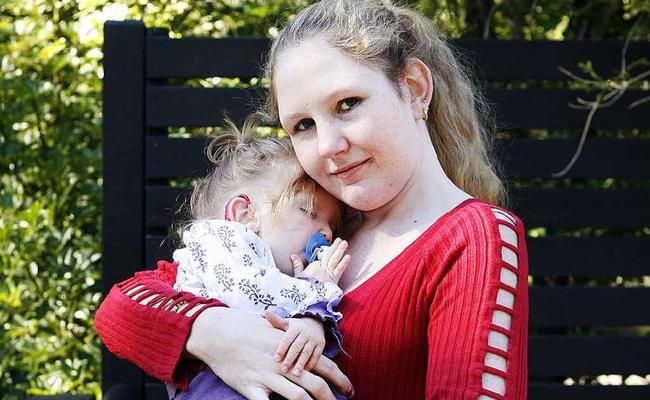Tiny Adele needs some special care
ADELE Elliott will never walk. She'll never talk, and she'll likely need a carer for the rest of her life.

Ballina
Don't miss out on the headlines from Ballina. Followed categories will be added to My News.
ADELE Elliott will never walk.
She'll never talk, and she'll likely need a carer for the rest of her life.
The 22-month-old Bellbird Park girl was born with 1p36 deletion syndrome, a congenital genetic disorder caused by the genetic deletion of the first chromosome.
It has caused a 70% reduction in her brain's white matter, a faulty heart valve, hearing and vision loss, learning difficulties and a lack of muscle control.
At the moment she can't sit up by herself.
Although first discovered in the 1980s, the condition was largely unknown until the past decade, and hundreds of sufferers worldwide were diagnosed with other disorders.
Adele's mother, Christine Priestly, said it took more than a year to find out exactly what condition Adele was suffering from.
"When Adele was born she was about half the size of other newborns even though she was full-term," she said. "We knew she was deaf from birth, but as time went on she just wasn't developing like a normal baby."
Adele has suffered seizures and had to be revived after one attack in the family home.
Ms Priestly said genetic testing was required to finally diagnose the syndrome.
"The genetic testing was rushed through when she was at 13 months, and that's when we found out what was wrong," she said.
"It means most likely she'll always need a carer; she won't be able to live individually."
While the syndrome was estimated to occur in up to one in every 5000 births, Ms Priestly said she knew of only eight other parents in Australia with children suffering from it.
Despite the current hardships, technology may offer a way in the future for Adele to communicate with other children with 1p36 deletion syndrome. They will use tablet computers such as iPads.
"They use it by tapping on an image of what they want and the iPad will put that into words."
As Adele is unable to sit up of her own accord, she can't interact or play with her siblings, Taylor and Storm.
Ms Priestly said they would have to buy a specialised seating system, costing $7000, to allow her to interact with her brother and sister and would have to pay up to $10,000 for an appropriate car seat within the next 12 months.
The Grandchester Model Steam Club, which Ms Priestley's stepfather helped create, will hold a running day for Adele.
The day will be held on Sunday July 1, with the money raised going towards her ongoing care.
The running day will be on from 10am to 3pm and feature raffles, stalls, face-painting and children's entertainment.
Problems
Children born with 1p36 deletion syndrome can suffer from:
- Delayed development
- Behavioural problems
- Difficulty feeding
- Brain abnormalities
- Vision and hearing loss
- Growth abnormalities
- Spinal deformities
Originally published as Tiny Adele needs some special care


